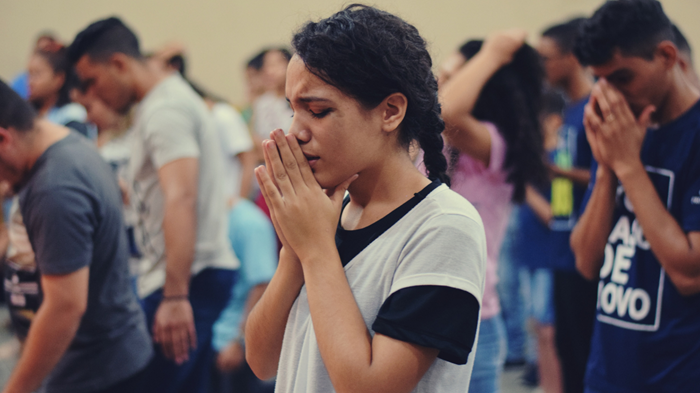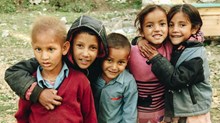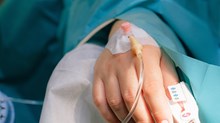Expect No Ethnic Majority in 2065 America. How Can Churches Fight Fear and Embrace Diversity Now?

If you think the U.S. is a melting pot now, just wait another 30 years. By 2065, the White demographic will cease to be the majority, and no single race or ethnicity will constitute a majority. For many people in the current majority, this statistic is cause for fear. But if we let go of our fear and embrace diversity, we will not only be better off, but we will look more like the kingdom God will raise up in glory.
The New Samaria, or “Samerica,” as author Alejandro Mandes refers to it, represents the increasingly multiethnic population in the United States. That’s what he unpacks in Embracing the New Samaria (NavPress, 2021), with the goal “to help Christian leaders learn to see, love, reach, and ultimately be the New Samaria in a way that brings true transformation to our churches and communities”.
Mandes guides readers through each of these steps, providing his own perspective as a non-White evangelical and allowing readers to expand their own views regarding multiethnic communities. Each chapter concludes with a reflection section, complete with challenging questions, spiritual exhortations, and recommended action items.
As a graduate of the Humanitarian & Disaster Leadership program at Wheaton, I have spent much of my education learning to empathize with people who are less privileged and more vulnerable than myself. I’m from the Bible Belt of the American South, and I’m uncomfortably aware of the fear some fellow churchgoers have of foreigners or people who are different. In the churches I’ve grown up in, immigration is a taboo topic, refugees are either threatening our economy or security (not factual, by the way), and other styles of worship are considered weird or wrong.
Rarely do I hear people speak in these churches about minorities with compassion, if at all. We emphasize the need for community without worrying much about the fact that the people in the surrounding neighborhoods would not feel welcome in our Christian communities. People are hurting around us, and we don’t educate ourselves about their troubles and experiences. We’re unconcerned, a bit like the priest and the Levite who passed the dying man on the road to Jericho.
But we have a marvelous opportunity to be the good Samaritan. The ones who give of their time and resources to care for the needs of people who are different. And if we rise to this blessed occasion, we will experience a richness in our lives beyond compare. Think Ebenezer Scrooge when he discovers the joy found in generosity. We too are in for unimaginable joy, if only we decide to care for others.
So maybe you want to obtain this incomparable joy but don’t know where to start. Mandes gives readers an excellent starting point by urging them to look inward. He describes three key ways we tend to be callous or unjust toward marginalized people: preference, privilege, and prejudice. Preference may surface when we favor our own customs and cuisines over other people’s and allow it to interfere with ministry and hospitality toward them.
Privilege often shows up in our broken systems that knowingly or unknowingly work in the favor of certain people. We can’t control our level of privilege, but we must work to identify it and seek to improve our institutions. Prejudice is the adopted belief that one group of people is better than another. These are all the handiwork of sin. None of these positions have any place in true ministry.
Embracing the New Samaria has so much to offer to believers who desire to live out the Great Commission (go and make disciples) and the Great Commandment (love your neighbor as yourself). Race is an extraordinarily complex issue, and it can be extremely difficult to put yourself in another person’s shoes, but this book is an excellent resource for anyone willing to do the hard work of building great communities.
Suzanna Edwards was an intern for The Better Samaritan and graduated from the Humanitarian & Disaster Leadership (HDL) M.A. program at Wheaton in August 2021. For more information about the HDL program, visit online.
The Better Samaritan is a part of CT's
Blog Forum. Support the work of CT.
Subscribe and get one year free.
The views of the blogger do not necessarily reflect those of Christianity Today.






















